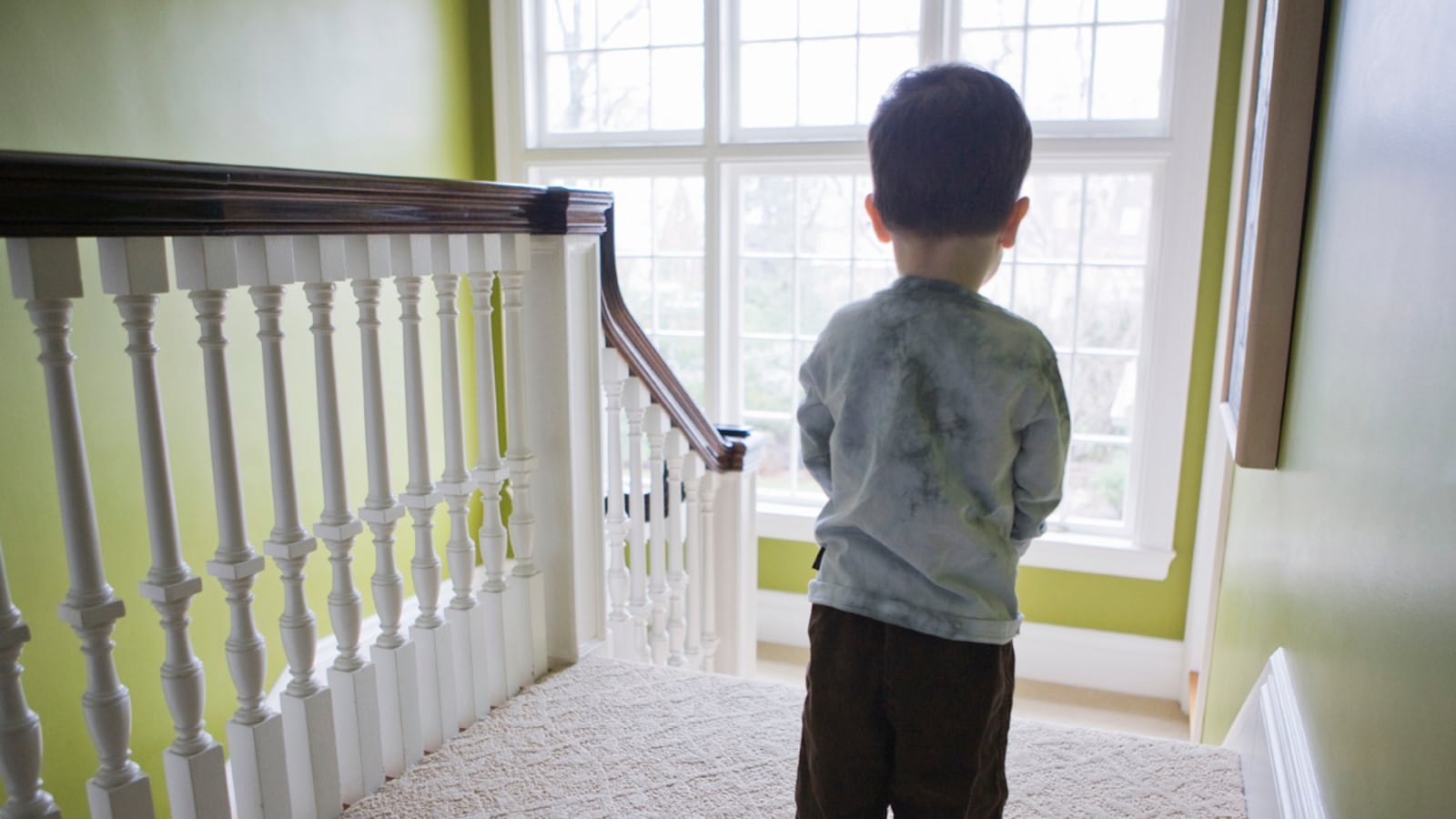In my novel about mothers raising children with autism, If I Could Tell You, there’s a scene in which a medical researcher lashes out at his wife just after their son has been diagnosed. He blames her for the child’s disorder: “You don’t discipline him, you don’t set limits,” he says, and goes on to criticize her for not playing classical music at home and not taking the child to playgroups. This passage—and this couple—resonated with many readers, who told me they have suffered similar tirades from their children’s fathers or other relatives.

And so I wanted to sing with relief and joy after reading in The New York Times about a new study finding a correlation between older fathers and autism. Dr. Kari Stefansson, the chief executive of Decode and the senior author of the study, which was published in the journal Nature, was quoted as saying: “It’s stunning that so little is contributed by the age of the mother.”
I know I’m not the only mother who feels a little lighter today because of those words.
While I’m trying hard to keep my eye on the prize—how to help my 16-year-old son, Danny, who was diagnosed at age 3 with a mild form of autism called Pervasive Developmental Disorder/Not Otherwise Specified—it’s hard not to take a minute to savor this news.
Like many mothers, I have a tendency to blame myself for every problem that comes up in my children’s lives. So when the autism came along, I took it very much to heart. I would go over my pregnancy and Danny’s infancy and early childhood in my mind and obsess over what I could or should have done differently.
I know autism is no one’s fault, but over the years, both family members and strangers have blamed me for Danny’s autism, both directly and indirectly, more times than I care to count. I try to ignore it all, but that’s easier said than done.
Until now, the world of scientific research has offered little comfort. In the 1950s, many scientists, doctors, and psychologists, most notably Bruno Bettleheim, used the term “refrigerator mothers” to describe the mothers of children diagnosed with autism and schizophrenia. And then for decades—decades!—little or no serious medical research was done on autism. Why bother, after all, if it was just the work of cold bitches?
In the 1970s and ’80s, some researchers began to posit that autism was in fact a neurological problem, rather than a psychological/emotional one. That has become the accepted theory, and anyone talking seriously about refrigerator mothers today would be considered a crackpot. But because of the slow start, autism research is still in its early stages. Occasionally studies show that a certain medication helps control some symptoms, or that another gene possibly linked to the disorder has been identified, but overall, scientists remain clueless as to what causes autism—and how to treat it.
Yet that hasn’t stopped various experts and family members over the years from blaming me for not getting my son diagnosed early enough, for not setting enough limits with him, for raising him in a bilingual household, for letting him continue to read storybooks he loved as a child, for encouraging him to talk too much, for taking him to too much therapy, for not taking him to enough therapy, for not taking him to the right kind of therapy … you get the idea.
Every mother of an autistic child has a similar list of sins of which she’s supposedly guilty. Of course, we do make mistakes with our kids. But we’re all just doing our best—and since the divorce rate for families with autistic children is higher, a disproportionate number of mothers of children with autism are going it alone.
So I’ve wondered, if I had had Danny at 25 instead of 33, would he have been spared? I’ve been carrying so much guilt and blame for so long that to be given a pardon on this one count is a wonderful gift.
I’d be lying if I didn’t admit that it’s also a small gift to imagine all the fathers out there who divorced a wife who was the mother of their autistic child and then moved on to start a new family with a younger, “safer” woman. While I don’t wish for anyone to have a child with all the difficulties that come with autism, if even a few of those dads read Wednesday’s news and felt a little heartburn with their morning coffee, I won’t lose too much sleep.





